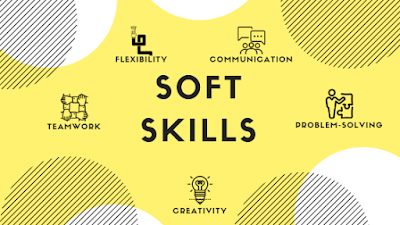What is a Case Interview? How Can I Prepare?
What is a Case Interview? How Can I Prepare?
Written By: David Grier
The case interview
is often regarded as the most difficult type of interview, and for good reason.
Successfully navigating a case interview requires quick thinking, efficient and
accurate mathematics skills, and the ability to draw an innovative, meaningful
conclusion from given information in a relatively short period. Case interviews
are a tool often used by private equity firms and management consulting firms
to test a candidate’s ability to investigate, interpret, and propose a solution
to a business problem in a logical and structured fashion while under
significant pressure. This gives the interviewer a good idea of the job
candidate’s potential fit for their company.
Case studies may
be presented to the interviewee in three different forms. The first form is the
Brainteaser, and is not very widely used. Some tech companies, such as Google,
have been known to include this type of case study in their interviews to gauge
critical thinking skills, but this is rare. The second type of case study is
the Estimation Case. This type of case requires the interviewee to break a case
up into different parts, and is often presented as part of a Business Case. The
Estimation Case requires both confidence and top-notch mathematical and
problem-solving skills to answer successfully. The third type of case study is
the Business Case. This is the most common type of case study, and often
requires a combination of the skills required for the first two types of case
studies. When solving a Business Case, the interviewee is expected to break the
problem down into separate components, analyze the information given to them in
the problem, collect additional data from the interviewer, and draw a
hypothesis from the information they’ve gathered. The Business Case culminates
in a strategic recommendation, which must be supported by facts from the case
and the conclusions the interviewee has drawn.
Business Case
interviews can be broken down into a four-part structure. The interviewer is
looking for the following aptitudes in the candidate:
1.
Identify the scope of the problem.
2.
Break the problem down and identify business
drivers and potential problem areas.
3.
Analyze information and develop insights.
4.
Summarize and communicate all information and
insights gathered effectively.
One technique used to crack the case interview focuses on three
separate analyses:
1.
Analyze the Market:
a.
Why should we enter the new market?
b.
What is the size of the market?
c.
What is our revenue potential in this new
market?
d.
What trends can be found in this market?
e.
What distribution channels are predominant in
this market? Could an innovation in distribution channels increase our market
share in this market?
f.
What constitutes success in this market?
g.
What customer segments are present in this
market?
h.
What are the barriers to entry and exit?
2.
Analyze the Client:
a.
How large is the company?
b.
How fast is it growing? How fast is it growing
compared to other companies in the market?
c.
What differentiates their products from the rest
of the market?
d.
What types of marketing has the company employed
previously? How well have they worked?
e.
What is the company’s market share?
3.
Determine the Optimal Market Entry Strategy:
a.
Should we start a product line/company from
scratch?
b.
Should we acquire a company that already has a
share of the market/brand recognition in that market?
c.
Should we embark upon a joint venture?
d.
Should we outsource this segment of our business
to another company?
If the
interviewee can answer all or most of these questions, they should then be able
to propose a strategy that will help the company enter the new market in an
optimal position. This proposal may involve multiple calculations depending on
the information given in the case, and must be supported by both quantitative
and qualitative evidence.
Successful
performances in case interviews are the result of intensive practice. A variety
of resources exists to help interviewees prepare for case interviews, including
comprehensive solutions to a wide range of practice case material. Please stay
tuned to the Zarb Graduate Business Career Services Blog (zarbgbcs.blogspot.com)
for upcoming case studies and detailed solutions to real cases!


Comments
Post a Comment